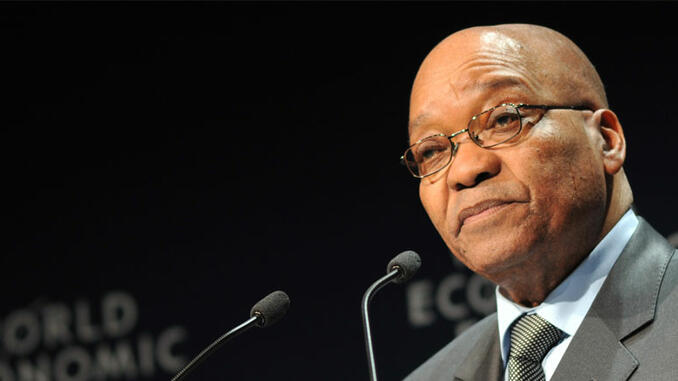
South Africa is often looked at as a democratic and economic model for the rest of its continent. It has a diverse economy, and since Apartheid, has been an example of non-racial, non-sexist democracy. However, for much of the past decade that image has been tarnished under the leadership of Jacob Zuma. Zuma, age 75, has been president since 2009 as the leader of the African National Congress (ANC), and has faced corruption charges for most of that period. On February 14th, Zuma officially resigned as South Africa’s president. His resignation was much overdue.
Jacob Zuma’s middle name is Gedleyihlekisa, which translates in Zulu to mean “one who smiles while causing you harm.” It is fitting for the man who is not wanted for just only a handful of corruption charges, but a staggering 783—and that is only how many were filed against him before he became president. A court had originally thrown out the charges, but South Africa’s Supreme Court of Appeals unanimously reinstated the charges in October of 2017, ruling that the reason they were originally thrown out was “irrational.”
As president, much of the reasoning for wanting Zuma to resign revolved around his relationship with the Gupta brothers (Ajay, Atul, and Rajesh Gupta). The brothers, from Uttar Pradesh in India, are business moguls accused of using their wealth and vast political influence to promote and fire government officials to further their business interests. The Gupta brothers are friends with Jacob Zuma and his family. So close is their relationship that collectively they are commonly referred to as the “Zuptas.” When emails came to light that suggested the Gupta brothers used their wealth and influence to gain lucrative government contracts for their companies, it reeked of corruption in regard to President Zuma whose family members have significant business dealings with the brothers. Five people were arrested when investigators raided a series of mansions belonging to the Gupta brothers in relation to corruption charges involving a government-funded dairy farm.
Finally, the ANC had had enough with Zuma’s scandals and moved to force him to step down in a vote of no-confidence. Zuma has survived votes of no-confidence before—eight times to be exact—but this time, however, was different. The ANC joined forces with the opposition in their call for a no-confidence vote, forcing Zuma’s hand. He was defiant until the end. In his final speech announcing his resignation, he played victim and asked viewers, “What is it I have done?”
South Africans can proud that they got rid of a bad leader without having to resort to extra-legal measures. Jacob Zuma’s departure from the scene was done by following the country’s laws and party practices. This cannot be said for their northern neighbor of Zimbabwe which had to force Robert Mugabe from power in a military coup last November.
The new president of South Africa, Cyril Ramaphosa, has a mess to clean up. The economy is shaky, and by many measures the country is worse off than it was before Zuma came to office. Currently the unemployment rate—with the participation rate factored in—stands at 36 percent. South Africa’s health and education systems are in desperate need of attention. And all of that must be dealt with on top of restoring the trust of the people.
